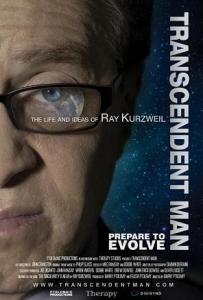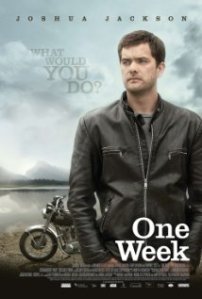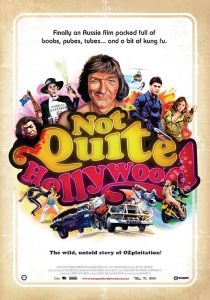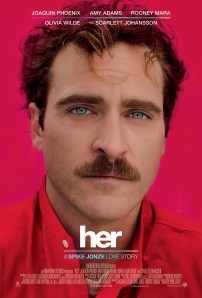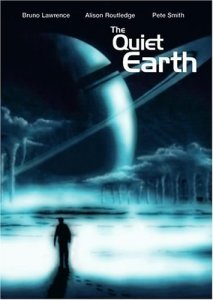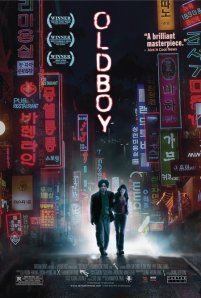What Sarah said:
I don’t like this movie but I think there are themes revolving around determinism that would spark an interesting discussion that we could spend many hours on the balcony with several beers discussing.
Mike’s verdict:
Sarah was right, in so far as this film was able to spark discussion. Unfortunately, the steady decline into winter greatly hampered the hours available for sitting on the balcony – though thankfully not the availability of beer.
She was also right that the discussion, at least initially, revolved around determinism. I went into The Truman Show knowing the basic premise – a man, living in a completely isolated world, is unaware that his entire existence is controlled for the sake of others’ entertainment – so it was not a far leap to the question of free will. However, I quickly found myself drawn away from my favourite (and, quite frankly, the correct) way of explaining the universe. Determinism isn’t the concern here. Truman has no less of a free will than you do.
Superficially, it appears as if Truman’s life is being inordinately controlled; everything he does is guided by the unseen force of the program producers solely for the benefit of others. As observers from the outside we are aware of the cameras, and the actors, and the container. We recognize that Truman is being manipulated; that everyone involved in his tiny universe wants, first and foremost, to keep the illusion alive, and secondly, to provide an entertaining program for the viewers. And of course his life is entirely devoid of privacy – everything he does is known, to everyone.
Yet Truman still has as much free will as you or I. His innate ability to make decisions, to choose his responses to life situations, is no different than that of the audience. Without question, the options available to him in most situations are severely limited and, worse, he is completely unaware of those limitations. But in terms of his actual ability to make decisions, he is no more suppressed than anyone else on Earth. In fact, within the cinematic universe The Truman Show only works as entertainment because he has free will. His personal agency is a necessary condition for the audience to enjoy watching him.
If we take a step back (okay, maybe take two or three steps back) to look at ‘real’ life side-by-side with Truman’s mini-world, the differences are really only a matter of scale: Truman was raised to believe that there was no need to leave the town he’d always lived in; that his life would be comfortable and fulfilling there; that ‘other’ places would be unnecessarily dangerous or just generally not as nice to live in. Millions of people around the world have lived, and will continue to live, with exactly this belief.
Truman’s world had strangers going about their own lives, briefly interacting with him in seemingly arbitrary but not inconsequential ways. It also included people with whom he developed relationships, directly affecting the decisions he made. In real life, we have these same influences – the woman who cuts you off in the store parking lot, the man your mother insists you go on a date with.
Truman had his decision-making ability limited by outside forces, guiding him to move about his world in ways that were not necessarily of benefit to himself, but of benefit to the larger system in which he existed. We all stop at stop signs, we all wait patiently in queues, and we all exchange our labour for easily accountable and pocketable credits.
We have all had our decision-making ability suppressed for the benefit of a larger system. Most of us call that system “society” and we like to think our participation is voluntary; that it comes from a conscious decision to enter into the “social contract”. But this is a convenient lie. In truth, individuals do not choose to enter the contract; there is no “opt out” clause for society. Vast systems of progress that have been developing for thousands of years narrowly focus the effective influence we have over our own lives, while paradoxically ensuring that we have a certain amount of influence over the lives of others.
To be fair, individuals in a society derive some benefits in return – usually in the form of security for the necessities of life. But Truman also receives these benefits; it is crucial for the show producers to ensure that he remains healthy. And just like Truman the amount of effective influence we retain as part of the social contract is minimal, especially compared to what we are required to give up. (Whether or not the control we relinquish is truly worth the security we receive in exchange is a question for another time.)
The point of this film is not to make the viewer imagine how they would feel if it turned out that their whole life were controlled for the benefit of others. It is, in fact, to highlight that all our lives are controlled for the benefit of others. For Truman, the control is very focused – he has everyone’s attention. In our ‘real’ world, control is instead spread across a boundless system of individuals who are mostly unable or unwilling to work together. We’re manipulated just like Truman, the difference is that there is no single puppet master – for us, it is the death of agency by a thousand influencers.
But the most important aspect of our situation is that the manipulations we suffer are universal. The conditions of the social contract are meant to affect everyone more or less equally. We can blissfully ignore our society of micro-manipulations because they don’t single anyone out. That is not the case for Truman. What really, truly upsets us about The Truman Show is not the question of free will, nor even the question of privacy – it is the terrifying notion of being the only one who isn’t in on the joke. Truman’s life is just as mundane as yours; it wouldn’t be worth watching if he consented to being watched. The audience is entertained because he doesn’t know that he is entertainment. He is being treated differently.
We all want to be recognized as special. We do not want to be treated as different.
There’s an interesting sub-theme that I found to be fairly subtle and is never directly address by the film itself, but could make for a whole other line of discussion: the audience… do they have free will? Do the individuals who are drawn obsessively to spend every minute watching Truman go about his mundane tasks actually have any of their own personal agency? Truman lived in an idyllic ocean-side town with friends and neighbours. He lived decades of this life with relative contentment; only questioning his existence when the mechanisms of the illusion began to fail. On the other hand, his audience is comprised of individuals who are clearly so engrossed in Truman’s life that they neglect their own. They are so enveloped by obsession that they cannot bear to be away from their view screens. Whose agency is really being suppress by The Truman Show? Is it the man who has been given an overwhelmingly ideal life, or the mindless hordes who cannot bear to miss any of it?
8/10



 Note: Today we have another
Note: Today we have another  What Jesse said:
What Jesse said: What Jesse said:
What Jesse said:
